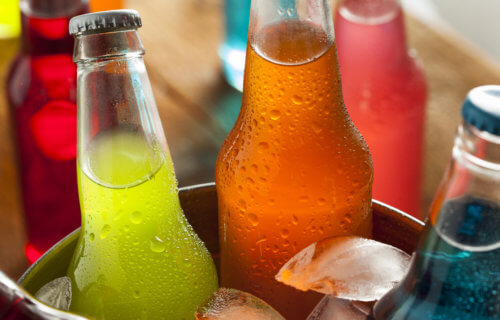GUELPH, Ontario — Not everyone likes the taste of alcohol, but many still drink. Mixing in sugary sweeteners makes imbibing a much simpler task, especially for inexperienced drinkers. Researchers warn sweetened alcoholic beverages like wine coolers don’t just make it easier to stomach booze, they’re a “gateway” to drinking problems.
A new study in the journal Alcohol finds high-fructose corn syrup (HFCS) makes the taste of alcohol more palatable, prompting consumers to have other beverages. Study co-author Francesco Leri, from the University of Guelph, adds that sweet wine coolers are particularly dangerous for young people.
“The more sweetened drinks that an adolescent drinks, the more likely they are to drink alcohol that is not sweetened,” the psychology professor says in a university release.
Confirming previous reports on adolescents and drinking, Leri’s study calls these beverages “a gateway – a way to get introduced and then like alcohol itself.”
High-fructose corn syrup prevalent in wine coolers
The Canadian team says high fructose corn syrup generally makes up a quarter of every sweetened alcoholic drink. Their new report looks at how various sweeteners entice lab rats into drinking.
“Most rats don’t voluntarily drink alcohol by itself. The moment we added HFCS, there was a huge increase in consumption,” Leri reveals.
Researchers gave the rats drinks which were 25 percent HFCS and 10 percent alcohol. After sweetening the beverages, some of the rats drank the human equivalent of 4.5 beers in just 30 minutes. The team says those are “binge drinking” levels of consumption.
The reports also looks at mixing saccharin (a zero-calorie sweetener) into alcohol. It also makes rats drink more of the sweet coolers, but not to the same level as HFCS.
‘Just another drug of addiction’
Study authors claim a person having sweet wine coolers can develop a tolerance for alcohol, even if they hate the taste on its own. They urge beverage producers to switch to natural sweetening ingredients like cane sugar, which appears to be less addictive.
Leri says parents also need to watch what their kids are drinking and intervene before a problem begins.
“Because it’s sweet and tastes like pop doesn’t make it any safer than a straight can of beer or glass of wine. Alcohol is alcohol no matter what,” he adds. “It’s just another drug of addiction, that’s all it is.”
